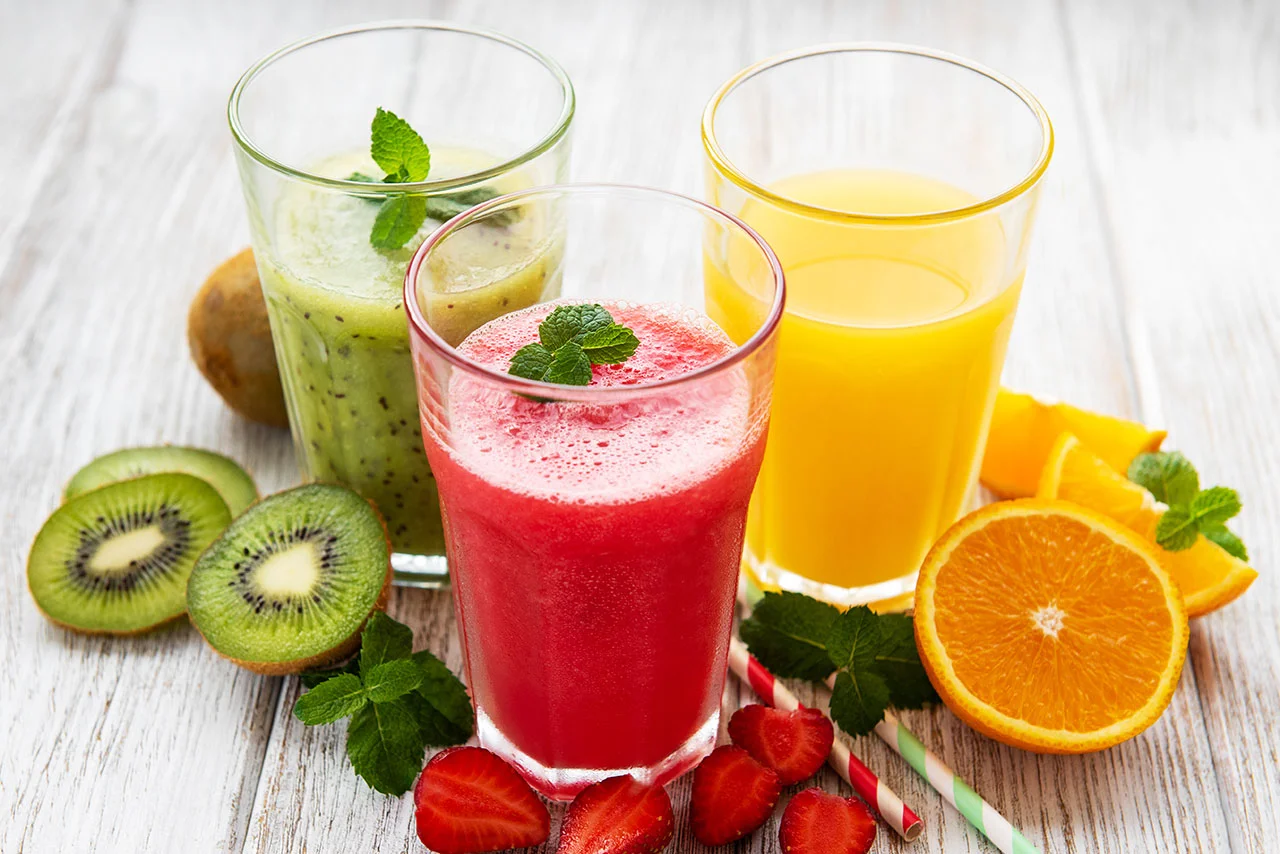Fruit juices have swept the nation with a deliciously convenient way to pack some fruits and veggies with a busy work schedule. Many popular brands are fortified with calcium and vitamin D, which are crucial nutrients for strong bones. However, fruit juices alone aren’t the solution to building your bone bank.
What do we mean by that? Read on to learn more about your bones, why supporting them is crucial, and the best fruit juices for your bone health.

How To Maintain Bone Health
It goes without saying how vital your bones are. They support you every day, and if you’ve ever experienced the pain and inconvenience of a fracture, you understand how crucial it is to take care of them. Navigating Canada’s winters with a broken ankle is far from ideal.
Your bones have two elements worth paying attention to - collagen and calcium phosphate. Like your hair and skin, your bones shed old cells and regenerate with new ones. As you age, this process slows down, and you won’t be able to produce cells as quickly as you lose them.
Typically, this isn’t detrimental to your health. However, if you didn’t start off with excellent bone density before the decline around age 30, or you aren’t actively giving your bones the nutrients they need, you may be at risk for developing osteoporosis. Osteoporosis occurs when your bones become weak and can fracture easily.
What nutrients promote better bones?
While calcium and collagen play important roles, more nutrients support your strong and resilient skeleton. Some of them help with absorption, while others help with cell regeneration. These include:
- Vitamin D
- Vitamin C
- Magnesium
- Protein
- Zinc
- Boron
- Copper
- Phosphorus
Fruit Juices and Bone Health
It’s crucial to be intentional with your diet to ensure you’re supporting your body with the nutrients it needs. If you’re having the same ham and cheese sandwich for lunch every day and aren’t considering when you fit in your recommended dose of vitamin D for absorption, this can cause your bones to become weaker.
Some people lean on the convenience of fruit juices when they’re too busy. But you do have to be careful about how much you consume, how the fruit juices are made, and how much sugar it has.
Best fruit juices for bone health
Fruit juices that have vitamin C, vitamin D, or calcium are great for supporting your bones. You’ll just want to be mindful of the sugar intake and that you’re getting the right amount of each serving. Here are some of the best bone-supporting fruits you can buy or juice yourself.
- Kiwis: It has the highest calcium content of any fruit. It also contains vitamin K and phosphorus.
- Cranberries: With vitamin C that boosts collagen production, this is a great ingredient to add to your diet.
- Oranges: This fruit contains vitamin C, potassium, magnesium, and other fantastic minerals.
- Strawberries: This powerhouse has a little bit of everything from calcium to vitamins C and K.
Best way to juice for your bones.
There are several methods of juicing - some of which take more effort than others. When browsing your local grocery store, you may see some familiar name brands that claim to have fortified their fruit juices with calcium, vitamin D, and other fantastic nutrients. However, the process it took them to deliver that matters.
When juice is marketed as freshly squeezed, there likely aren’t thousands of employees hand-squeezing a barrel full of oranges. This is actually done by putting the fruit through spinning blades. This mechanical process warms up the fruit, which is where a lot of the essential nutrients get lost.
Cold-press juices are a better option if you’re drinking for nutrients. This process uses a hydraulic press and has no heat production whatsoever.
Downsides to fruit juices for your bones.
A cold-pressed juice on a busy day is a great solution for getting the right vitamins and minerals. However, this shouldn’t be a permanent replacement for a healthy diet. This process has some health disadvantages, especially if used over a long period.
- You’ll be consuming more sugar: Most fruits have more than 15 grams of sugar. The fruit juices you’re choosing matter. For example, a mango has 40 grams of sugar, while a cup of blueberries contains 15 grams.
- Less fibre: Fruits and vegetables give your body a great dose of fibre when consumed raw. When the pulp is removed, you won’t get as much fibre in your diet. It’s important to keep fibre in your system to clean your blood vessels, which support oxygen delivery to your bones.
- Not enough calcium: Fruit juices contain tons of nutrients, but calcium isn’t typically as prevalent, which is a critical component of bone health. If you don’t consume dairy, plant-based milk with more calcium content may be worth considering.
Your bones require a combination of good lifestyle choices, an intentional diet, and resistance-based exercise to maintain their health. As you get older, paying attention to this becomes more crucial with the slowdown of cell regeneration. When you break a bone, you’ll want to ensure you have a balanced diet of the proper nutrients to get you back to pre-injury living asap.
With a fracture, you may be limited in the types of weight-bearing exercises you can do. To help speed up your recovery and give your bones a boost, there is ultrasound technology that can activate cell reproduction and protein expression while using a LIPUS device for just 20 minutes a day. Contact Fracture Healing to find out if you’d benefit from the NASA-inspired technology that supports better bones.
Do you pay attention to the nutrients in your diet? What’s one thing you can do to incorporate a more intentional diet for your bones? Share your thoughts with our readers in the comments below.





